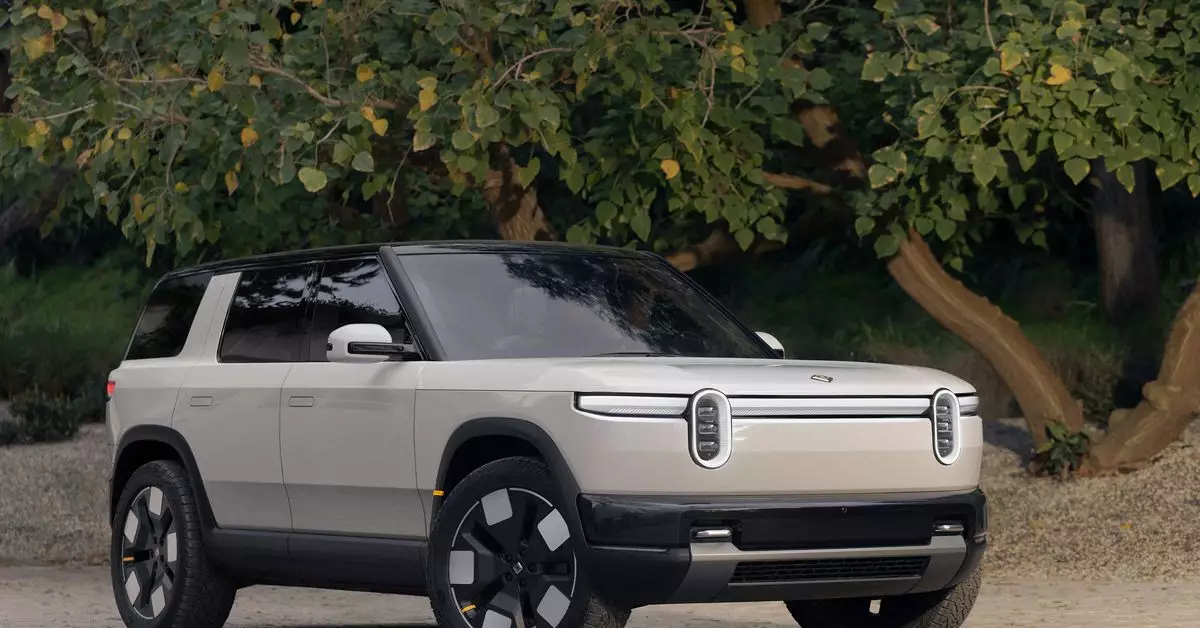The electric vehicle (EV) landscape is rapidly changing in the United States, and Rivian Automotive has taken a bold step towards adapting to this evolving arena. As a pioneer in the EV sector, Rivian recently announced a significant shift in its battery production strategy, transitioning to a domestic manufacturing process in collaboration with South Korea’s LG Energy Solution. This initiative is part of Rivian’s ongoing efforts to produce its R2 model, an affordable electric SUV set to debut in 2026.
The Growth of Rivian’s R2: A Game Changer for Electric Mobility
Rivian’s R2 line, which aims to be more accessible with a starting price of $45,000, signals a strategic pivot towards capturing a broader market segment. This transition from the high-end R1 series to the more affordable R2 reflects the growing demand for budget-friendly EV options amid rising competition. The inclusion of new battery technology, specifically designed with the dimensions 46mm in diameter and 95mm in height, promises a lighter and more efficient product. By opting for the 4695 cell design, Rivian not only ventures to improve production efficiency but also distinguishes itself from competitors like Tesla, who currently utilize the 4680 cells.
The recent announcement from Rivian regarding its domestic battery production capability also aligns with new regulations instituted under the Inflation Reduction Act (IRA), which incentivizes manufacturers to produce EV components within the United States. By sourcing battery cells from LG’s facility in Queen Creek, Arizona, Rivian ensures compliance with federal requirements that are crucial for qualifying for substantial tax credits. This move is timely, as automakers scramble to adapt to new regulations that dictate domestic production standards.
Moreover, the anticipated reduction of manufacturing costs—specifically noted as a 45% improvement over the current processes—highlights Rivian’s focus on both performance and affordability. This efficiency may allow Rivian not only to streamline production but to offer competitive pricing in a market that is becoming increasingly price-sensitive.
While Rivian’s recent advancements present a promising outlook, there are clouds looming on the horizon. The return of Donald Trump to the political forefront raises questions about possible shifts in EV subsidies, which were pivotal under the Biden administration. Trump’s administration previously indicated a strong stance on protecting American manufacturing, but specific commitments to support the EV sector remain uncertain.
The specter of potential tariffs on imported goods could further complicate Rivian’s plans. As automakers are already facing challenges in the supply chain—accentuated by the global semiconductor shortage—any new tariffs could impede the necessary imports to support production schedules or raise costs significantly, thus impacting pricing structures and consumer demand.
The partnership between Rivian and LG Energy Solution represents not only a strategic alliance but also a dependence on a much larger OEM (Original Equipment Manufacturer) integrator. Beyond LG, this South Korean firm is also working with legacy brands such as General Motors, which may create competitive tensions. As Rivian carves its niche, questions about its independence and competitiveness against established players may come into focus.
This dichotomy between seeking partnerships for technology and navigating an increasingly competitive landscape puts Rivian in a delicate position. On one hand, leveraging LG’s manufacturing expertise in the EV industry could lead to significant advancements; on the other, it poses a risk of becoming another cog in a larger machinery dominated by established brands.
The Road Ahead: Can Rivian Maintain Momentum?
Rivian’s trajectory appears to be on an upward spiral as it prepares for the R2 launch and embraces domestic battery production. However, it must contend with external factors that could disrupt its plans. The company is at a critical juncture: it has the potential to capture a burgeoning market for electric vehicles but must navigate regulatory hurdles, market dynamics, and political uncertainties that can significantly affect its prospects. Whether Rivian can successfully pivot to maintain momentum amidst these challenges will define its role in the ongoing evolution of the electric vehicle market.

